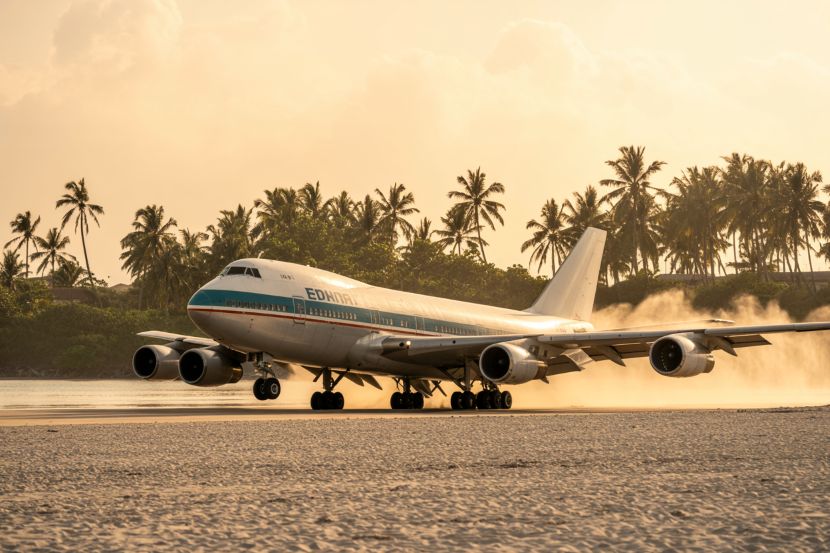Published on
October 18, 2025

AirAsia, a major Malaysian airline, is reportedly in early talks to acquire a minority stake in Vietravel, a prominent Vietnamese travel company. This potential move comes as part of AirAsia’s strategic efforts to tap into the rapidly growing aviation market in Vietnam, a country seeing sharp increases in air travel demand. The negotiations, still in the early stages, are focused on AirAsia taking a small ownership in Vietravel, a company known for its travel and tourism services. The deal would align with Vietnam’s foreign ownership cap for airlines, limiting outside investment to 34%.
The aviation sector in Vietnam is booming, driven by a rapidly growing middle class, increasing domestic travel, and rising numbers of international visitors from countries like China, South Korea, and India. With competition heating up in the country’s already congested skies, AirAsia’s potential partnership with Vietravel could allow it to strengthen its regional foothold and expand its presence in Southeast Asia.
Vietnam’s Booming Aviation Market and Growing Competition
In recent years, Vietnam has emerged as one of the fastest-growing aviation markets in Southeast Asia. With post-pandemic recovery driving a significant rebound in passenger volumes, the demand for both domestic and international flights has surged. The country’s growing middle class has led to an increase in air travel, while the influx of international tourists boosts the demand for regional connections.
However, the Vietnamese aviation market is becoming increasingly competitive. Major local players like Vietnam Airlines, VietJet Aviation, and Bamboo Airways dominate the industry, while newer entrants, such as Sun PhuQuoc Airways, are also making their mark. Sun PhuQuoc Airways, for example, has ambitious plans to acquire 100 aircraft over the next five years to compete in Vietnam’s overcrowded skies. This competition further highlights the potential rewards and challenges AirAsia faces in entering the market.
Strategic Moves by AirAsia: Lessons from the Past
AirAsia has long eyed the Vietnamese market, given its strategic location and strong growth potential. In 2019, the airline tried to establish a joint venture with Gumin Co and Hai Au Aviation JSC to create a low-cost carrier in Vietnam. However, the deal fell through, and AirAsia decided to step back. Nevertheless, the airline’s commitment to entering the Vietnamese market has remained strong, with Tony Fernandes, the CEO of Capital A Bhd (AirAsia’s parent company), frequently expressing interest in establishing a more prominent role in the region.
The Current Talks: Potential Impact on AirAsia’s Growth
Tony Fernandes recently confirmed that AirAsia is actively negotiating with a local partner in Vietnam. The discussions, which are reported to be “progressing well,” are focused on finalizing the terms of a potential agreement. Although details remain under wraps, the outcome of these talks could have a significant impact on AirAsia’s expansion strategy in Southeast Asia.
The Vietnamese aviation market is poised for continued growth, especially with the increasing demand for both domestic and regional flights. AirAsia, which already has a solid presence in Southeast Asia, stands to benefit from a partnership with a local player like Vietravel, helping the airline to establish a more robust presence in Vietnam.
How AirAsia Could Benefit from a Partnership with Vietravel
A partnership with Vietravel could offer several benefits for AirAsia. First, it would give the airline access to Vietravel’s established network and customer base. Second, the potential partnership could allow AirAsia to navigate the regulatory landscape in Vietnam more effectively. As foreign ownership in Vietnamese airlines is limited to 34%, a strategic partnership with a local player would help AirAsia sidestep this restriction while still benefiting from the growing market.
Additionally, AirAsia’s reputation as a low-cost carrier could help capture more of the domestic and regional traffic that is fueling growth in Vietnam’s aviation sector. Vietravel, known for its travel services, would complement AirAsia’s flight network, especially as the Vietnamese tourism market continues to grow.
The Role of Tourism in Vietnam’s Aviation Boom
Vietnam’s tourism industry plays a crucial role in the country’s aviation growth. The country has seen a steady influx of international tourists, drawn by its rich cultural heritage, beautiful landscapes, and vibrant cities. As inbound tourism continues to rise, the demand for air travel to and from Vietnam is expected to remain strong.
For travelers, this means more flight options, competitive pricing, and a more connected Vietnam within the Southeast Asian region. AirAsia’s potential expansion in Vietnam, coupled with the country’s growing tourism sector, could make it an attractive destination for both business and leisure travelers.
Tips for Travelers Visiting Vietnam
For those planning to visit Vietnam, here are a few travel tips:
- Book Early: With the growing demand for flights to Vietnam, especially during peak seasons, booking tickets in advance is highly recommended.
- Explore Beyond the Major Cities: While Hanoi and Ho Chi Minh City are popular destinations, consider exploring Da Nang, Hue, and Phu Quoc for a more authentic experience.
- Understand Local Etiquette: Respect for local traditions is essential. Vietnamese culture places great emphasis on politeness, particularly when interacting with elders.
- Travel Smart: With the increase in competition, airlines in Vietnam are offering great deals. Keep an eye on promotions and new routes, particularly from low-cost carriers like AirAsia.
- Visa Requirements: Depending on your nationality, you may need a visa to visit Vietnam. Be sure to check the visa requirements before planning your trip.
Final Thoughts on AirAsia’s Future in Vietnam
As Vietnam continues to grow as a key player in Southeast Asia’s aviation and tourism markets, AirAsia’s efforts to enter the region could mark a significant milestone in its expansion strategy. If the ongoing discussions with Vietravel progress into a finalized deal, it would solidify AirAsia’s position as a major airline in the region, capitalizing on Vietnam’s growth potential. As competition increases, travelers stand to benefit from more flight options, better pricing, and improved connectivity across the region.







